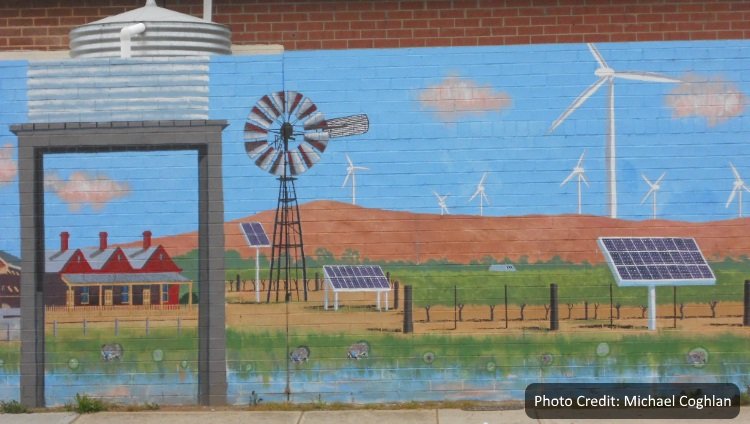Code of Conduct Spotlight on Quality Principal 3 – Sustainable Change
In the second installment of our Spotlight on the Code series, we shine the light on Quality Principle (QP) 3 of ACFID’s Code of Conduct: Sustainable Change. In this blog, we unpick QP3; preview how ACFID’s members are embedding sustainable development in their work; and showcase what’s in store for this spotlight.
ACFID’s members commit to seeking durable and lasting improvements in the circumstances and capacities of primary stakeholders. To do this, our work needs to be shaped by local voices, systems and structures and build local communities and organisations.
QP 3 articulates this approach by committing members to:
- Building primary stakeholder capacity
- Systemic change; and
- Environmental sustainability.
Commitments under QP3
Under each Quality Principle are a series of Commitments. While not new to many members ways of working, Commitments under QP3 relating to sustainable change (Commitment 3.1) and systemic change (Commitment 3.2) are new to the Code. These Commitments have been introduced in response to global recognition of the role of sustainable development in addressing poverty and inequity, as expressed through the Sustainable Development Goals.
The associated Compliance Indicators in the Code have accommodated feedback from ACFID’s members that requested particular emphasis on identifying and working with appropriate local systems, structures and agents of change. This represents our sector’s own evolution in its approaches to achieving sustainable change.
Before we delve into each Commitment, we kick start this spotlight with a blog from the CEO of Live and Learn, Christian Nielson, which can be found here. He explains how Live & Learn Environmental Educations’ approaches sustainable change, and what they have in place to ensure this is at the heart of all their activities.

Commitment 3.1: Durable and lasting improvements in the circumstances and capacities of primary stakeholders.
Commitment 3.1requires our members to
- design initiatives to respond to the root causes of poverty and inequity
- identify and influence local organisations and/or primary stakeholders to enhance and promote their own development, and
- support local partners to develop their capacity to influence their own development.
As an example of building up local capacity and contributing to systemic change over the long haul; we throw the spotlight on CARE Australia’s efforts in developing local capacity in their projects throughout PNG, Timor Leste, Vanuatu and Vietnam –exploring what they have learned from taking a strength-based approach to community-based adaptation.

Commitment 3.2 We contribute to systemic change.
Commitment 3.2 commits our members to contributing to systemic change. This particularly involves working with local systems and structures to support and strengthen local people and systems. We recognise that most development challenges involve multiple stakeholders and processes that interact together in a system, and impact on multiple systems.
We bring you 2 case studies highlighting innovative approaches to localisation regarding the Ambae Volcano Response in Vanuatu in late 2017. An important mandate of The Church Agency Network for Disaster Operations (CAN DO) agencies is the ‘localisation’ of humanitarian programs. One of the case studies identifies shows that it is clear that the practice of participatory evaluation planning is critical to localisation, if we are to see meaningful changes to the systems we are striving to achieve in international development and humanitarian response. The other shows an approach to initiating a localised response to emergencies, as shown by the CAN DO Ambae Volcano Response, and how their agencies brought together local community through leadership summits.
See the case studies here;
The workshop ‘Using Systems Thinking to Design your Collaboration’ , which has been delivered to members in Melbourne and Sydney over the past year, is being held in Canberra on 2-3 July, in collaboration with the CSIRO’s Livelihood and Adaptive Development Team and Collaboration for Impact (CFI). Complementing ACFID’s Sustainable Development Goals Toolkit, this 2-day workshop is designed to support and train individuals and organisations driving large-scale social change initiatives.
Part of this focus on systemic change (3.2) is supporting communities to find their own voice through effective advocacy. The Code requires members to have a policy that ensures advocacy is accurate and safely reflects the voice of affected communities.The Australian Red Cross shares its Policy Statement on Advocacy as an example of good practice, as part of this Spotlight and also as a resource in our Good Practice Toolkit.

Commitment 3.3 We promote environmental stewardship and sustainability.
Commitment 3.3 acknowledges that the environmental sustainability and stewardship is an integral part of long term development and needs to be a key part of the way we work. It expands the focus from understanding and reducing negative environmental impacts to also promoting environmental sustainability and improved environmental outcomes.
This responds to the sector’s increased recognition of the linkages between the environment and sustainable development and in particular, the focus within the sector on the need to address climate change and its significant future impacts on vulnerable communities.
As part of our focus, we speak with WWF about their successful Sustainability Committee that was put in place to deliver WWF-Australia’s Environmental Sustainability Strategy (2017-2021) for their internal operations. With plenty of competency, attitude, commitment and availability, the cross functional team was so successful in building environmental sustainability culture across all aspects of WWF Australia, that it is no longer needed! This captivating case study is a great read and has received widespread kudos on social media. Read the blog here.
And last but not least – we interview President and Chief Executive Officer of NTA East Indonesia Aid, (‘NTA’) Dr Colin Barlow. We learn from their perspective of one of our smaller members how they embrace sustainable development broadly with their partners and the communities in which they work.
NTA efforts are aimed at providing systemic change within small and disadvantaged farming communities, with systemic change amongst these communities requiring continuous improvement in livelihoods, food production, water and sanitation and education. They tackle all these components as part of an integrated package to maximise its adoption across the communities and to promote change throughout the community as a whole. Engage with this revealing interview and their story – watch the video here.
We hope you enjoy the journey as we turn the spotlight on QP3, and we look forward to exploring this QP, and more with you throughout the year. We welcome your feedback, ideas and input at any time. Feel free to connect with the Standards and Code team on [email protected] or (02) 8123 2237.

Sarah Burrows
Sarah leads ACFID's Effectiveness and Engagement Team which manages ACFID's Code of Conduct, Membership and the Learning and Innovation program. She has previously work on accountability and standards. Prior to working with ACFID, Sarah spent 10 years working locally and internationally in the development and analysis of sustainability and climate change policy and projects. She has a Masters of Diplomacy and a Masters of Environmental Sustainability and Development.




